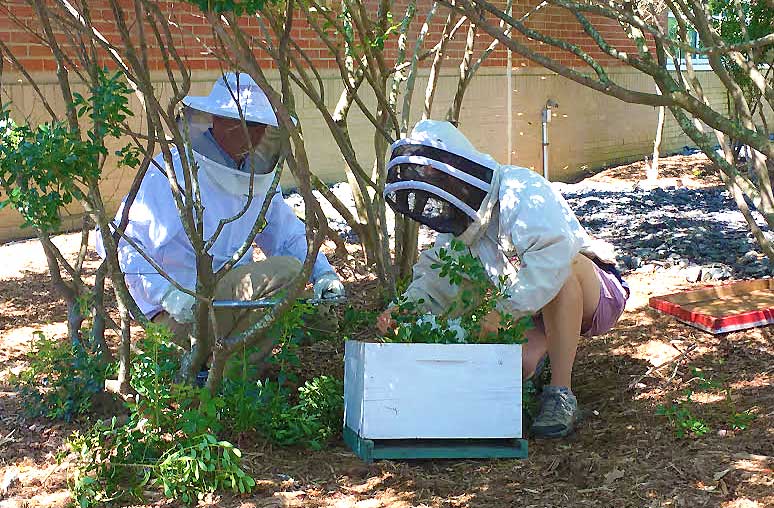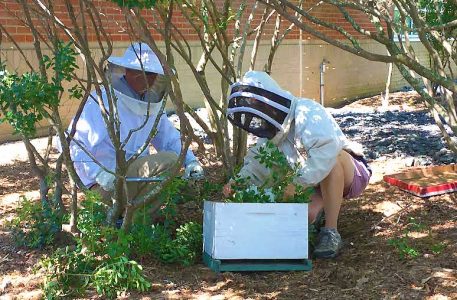Collaboration Leads to Campus Bee-Saving Effort

This past summer, there was a buzz around NC State’s James B. Hunt Library that wasn’t exactly ideal. A swarm of wild bees — about the size of a basketball — had started creating a hive in a tree next to a busy sidewalk.
While having bees on campus is good for pollination and the environment, their location near heavy pedestrian traffic created a safety hazard.
The bees needed to be removed, but could that be done without harming the bees?

To evaluate the potential for moving the bees, Steven Eisenberg, an NC State construction project manager and avid beekeeper, connected with NC State apiculture technician Jennifer Keller.
“Swarms typically land in trees for a few days before building a hive in a cavity-like area,” Keller said. “This swarm was an exception; they didn’t find a new place and started building their home in that tree.”
Keller and Eisenberg decided to relocate the swarm to a field behind Sullivan Shops, where Eisenberg and fellow NC State employee Johnny Cline have maintained multiple campus hives since May 2013. Because it was late in pollination season, the estimated 10,000 wild bees in the hive will require additional feedings to survive winter, but beyond that have adjusted well to their new environment.
“Bees are quick to realize they have been moved to a new location. Forager bees start out by taking shorter orientation flights and then longer flights to search for food sources,” Keller said.
Though the average person shouldn’t attempt to move a hive or swarm, Keller said, most bees can be moved if located in less-than-ideal areas. Many beekeepers are willing to accept relocated bees, and often the local NC Cooperative Extension Office is the best way to connect with area beekeepers.
“Bees are important to our environment. The pollination they do is important,” Keller said. “Unfortunately, honey bees have been in the news a lot because of their plight, but the good news is that more people are aware of their importance and are eager to help.”